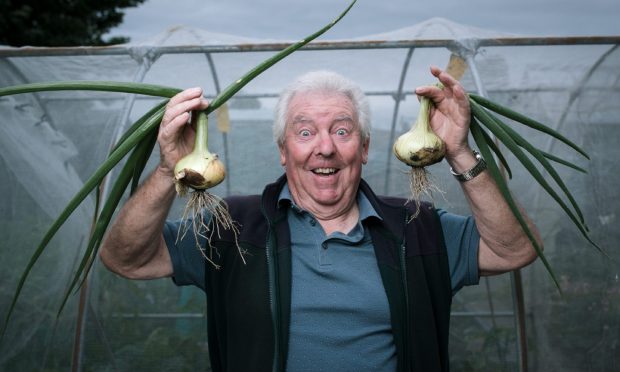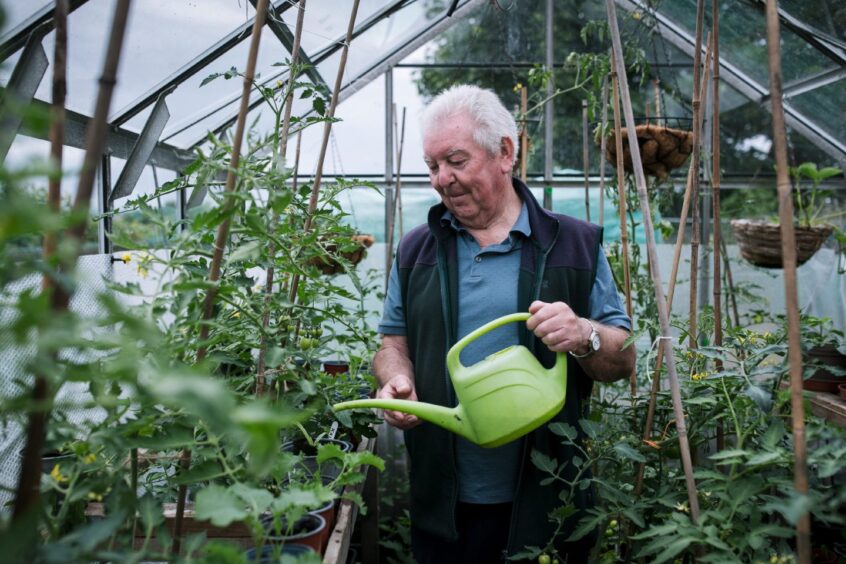
From the common man to royalty, the simple pastime of cultivating summer blooms or growing vegetables for the dinner table has aligned generations of Scots to the rhythms of nature.
Now new research shows that gardening can make life itself longer and healthier.
A ground-breaking study by Edinburgh University psychologists kept track of hundreds of Scots and their lifestyles across nearly a whole century.
And it found that time spent gardening may protect against dementia up to the age of 80.
The paper – published in the Journal Of Environmental Psychology – concludes: “The mentally stimulating nature of gardening, as yet relatively unexplored, might contribute to brain reserve even in older age.
“These results identify a promising new line of inquiry for understanding the lifestyle factors that may promote successful cognitive ageing.”
The research
The research team gathered data as part of a long-term survey of brain function called the Lothian Birth Cohorts.
Children born in and around Edinburgh in 1921 sat an intelligence test when aged 11 to measure their reasoning and arithmetic ability. Hundreds of these people were then traced in later life at the turn of the century and took the exact same quiz when 79.
They also gave details of their lifestyles and completed frequent assessments of their brain health up to the age of 90.
Of the 467 people tested, almost 30% had never gardened, but 44% still did regularly.
The results showed a clear divide. On average, the 280 who frequently or sometimes gardened had better cognitive ability as pensioners than they did aged 11. But the 187 who had never gardened or rarely did so typically had a lower test score than when they were children.
Between the ages of 79 and 90, brain function generally declined across the board, but the earlier advantage of gardeners held.
The link with gardening “persisted after adjusting for education, occupational social class, health factors, and importantly, overall physical activity”.
Led by Dr Janie Corley, the authors said: “Identifying lifestyle behaviours that facilitate healthy cognitive ageing is of major public interest for the prevention of cognitive decline and dementia.”
They added: “The relationship between gardening and healthy cognitive ageing has largely been overlooked. [It involves] not only physical exertion but creativity and planning. Engaging in gardening projects, learning about plants, and general garden upkeep, involve complex cognitive processes such as memory and executive function.
“Consistent with the ‘use it or lose it’ framework of cognitive function, more engagement in gardening may be directly associated with a lower risk of cognitive decline.”
Dementia risks
Dementia is when the brain incurably degenerates to the point where it struggles to remember, concentrate and solve problems. It now affects nearly 100,000 Scots and is responsible for 13% of all deaths.
The risk of developing the disease is raised by unhealthy lifestyles, but keeping the brain active and getting sufficient sleep are believed to help stave it off.
Alzheimer Scotland last year opened the UK’s first Outdoor Dementia Resource Centre near Aviemore, Inverness-shire, allowing those with the condition to enjoy gardening, among other activities.
Gillian Councill, the charity’s executive lead on brain health and innovation, said: “It’s encouraging to note the study’s findings that gardening has the potential to promote mental stimulation and improve cognitive function. People often don’t realise the wide range of benefits it can bring. For example, digging, planting and pulling weeds will increase hand strength, which research has shown can boost brain health.
“Growing your own food can help you eat a healthier diet; another key factor. “And staying connected to other people is beneficial for brain health, so community allotments are a great place to socialise, reducing loneliness and isolation.
“At our base near Aviemore, gardening is one of our most popular groups. People with dementia – of all ages and at different stages of their illness – and their family carers gain so much from being, and learning, in nature.
“Linking gardening to the seasons provides a rich, multisensory experience that enhances their well-being.”
We have deep connections to the land
Denis Barrett, 76, spends 30 hours a week at his plot at the Budhill & Springboig Allotments in the east end of Glasgow.
The retired car part sales executive travelled the UK for his job and never gardened – but 15 years ago gave in to an urge to grow his own fruit and veg as he approached retirement.
He now has six beds, two polytunnels and a potting shed, bringing home everything from potatoes, onions, peas and beans to exotic chillies, figs and olives.
Denis recalled: “When I said I was going to get an allotment, my wife said: ‘Where did that come from?’, and I didn’t know.
“Maybe it was going back to my childhood when my old man had a greenhouse, made of window frames, and it was my job to water the tomatoes.
“I believe we all have a connection to the land deep down. It’s just that we’ve lost it a bit in Scotland.
“It’s amazing how many people you speak to at the allotments whose interest and knowledge comes from their grandparents.
“So it’s two generations back – but something has triggered that latent interest and they’ve got back to growing. I’ve travelled all round the country, but I’m now back to my roots.”
He added: “After a stressful career, I’m out in the fresh air. I feel more relaxed; I sleep well, eat well and feel great.
“I can see why gardening keeps the brain active. You have to have a plan. I’ve got seeds on the go already for next year.
“And you learn something every day. At the allotments,there are Chinese, Polish, African and people from every part of Britain. They all have different ways of doing things and you swap ideas.
“With climate change, there is also the challenge of adjusting what we do as the timings of sowing are altering.
“But there is nothing like the taste of something that’s just come straight off the tree or out of the ground.
“It’s like food used to be.”

Enjoy the convenience of having The Sunday Post delivered as a digital ePaper straight to your smartphone, tablet or computer.
Subscribe for only £5.49 a month and enjoy all the benefits of the printed paper as a digital replica.
Subscribe © Andrew Cawley
© Andrew Cawley